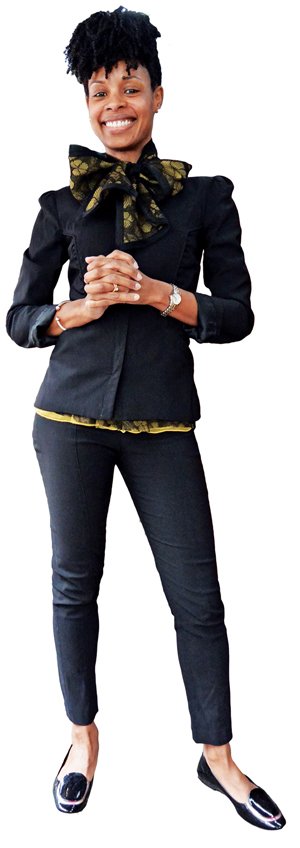Cave Canem was established by Cornelius Eady and Toi Derricotte in 1996 to nurture black poets both on the page and in the publishing marketplace. The Brooklyn, New York–based organization’s many programs include writing workshops, master classes, a reading series, publication prizes, and an annual retreat, which brings together more than fifty poets, or “fellows,” each year. In January Nicole Sealey, previously Cave Canem’s programs director, became the organization’s new executive director. A veteran arts administrator (including a previous role as the assistant director of Poets & Writers’ Readings & Workshops program), Sealey is also a poet; her first full-length collection, Ordinary Beast, will be published by Ecco in September. A couple of months into her new position, Sealey spoke about the future of Cave Canem.

Nicole Sealey (Credit: Murray Greenfield )
Can you tell me a little bit about your relationship to Cave Canem?
Almost ten years ago I participated in Cave Canem’s eight-week fall workshop in New York City, facilitated by Marilyn Nelson. I was a very young writer and it ended up being a formative experience in my life. We got serious about craft and made lifelong connections in the process. I’ve met many of my closest friends through Cave Canem, the closest of all being my husband, John Murillo. The very least I can do for an organization that has served me well for the last decade is to return the gesture.
How does being a writer influence the way you will lead the organization?
Cave Canem has always had a “poets first” philosophy, which has served the organization well for the last twenty-plus years. Remember, the organization was founded by rock-star poets and directed for the past decade by Alison Meyers, also a poet. In that tradition, I plan to lead with both head and heart, which are the qualities I value most in poetry.
What’s ahead for Cave Canem and for you as the new executive director?
In May we’ll be capping off our twentieth-anniversary year with Cave Canem 20/20: A Panoramic Vision of Black Poetry, a two-and-a-half day poetry forum at Weeksville Heritage Center in Brooklyn. The forum will offer readings, skill-building panels, artist conversations, and more. I’m also looking forward to my first retreat as executive director. The retreat takes place in June at the University of Pittsburgh in Greensburg, Pennsylvania. It’s our flagship program, and where, as Harryette Mullen says, “black poets, individually and collectively, can inspire and be inspired by others, relieved of any obligation to explain or defend their blackness.”
So much has changed since Cave Canem faculty member Elizabeth Alexander recited “Praise Song for the Day,” the inaugural poem for Barack Obama in 2009. What do you see as the role of Cave Canem, and poetry more broadly, in the new political climate?
“So much has changed” is a very gracious way to describe the political climate in which we now find ourselves. In “Praise Song for the Day,” the speaker asks, “What if the mightiest word is love?” I have no doubt that it is love, but the new administration would have me believe that the mightiest word is fear or, worse yet, the president’s name. It is neither. It is love. And what is love if not a society based on justice and equality? With this in mind, the role of Cave Canem in particular, and poetry in general, is and will be to comfort the afflicted and afflict the comfortable. With love. Bigly.
Are there any outreach programs on tap to connect poetry with readers?
Cave Canem’s Poets Tour, a nonprofit speakers bureau, connects national audiences with Cave Canem fellows through readings and workshops. This year we hope to increase the number of participating fellows and reach out to presenting institutions, including high schools, universities, museums, libraries, and prisons. We want to bring black poets to diverse communities.
Tayari Jones is a contributing editor of Poets & Writers Magazine.








